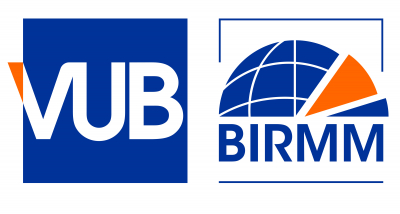CLUSTER 2: Equality and diversity
BIRMM’s research cluster on equality and diversity largely studies the consequences of migration on both origin and destination regions, and in particular the causes, processes, consequences, policies, politics, and legal frameworks related to the inclusion and exclusion of migrants and minorities in different societal spheres.
A first strand in this cluster studies the 'hows and whys' of immigrants’ and ethnic minorities’ (un)equal participation in different societal spheres: education, labour-market, health care, housing and politics. While doing so, they focus on the study of mainstream institutions, the practices of every day discrimination, and features of the ethnic minority and majority populations. They also address the influence of the intersections of ethnicity/race with other discriminatory mechanisms like gender, age, religion, health status, handicap, class and sexuality. This strand offers a.o. unique research foci on migrants’ and ethnic minorities’ health (Ann Roex); the causes, patterns and consequences of discrimination in housing, in the labour market and in public government services, and cumulative discrimination in different domains (a.o. Pieter-Paul Verhaeghe, Eva Van Belle) and unequal participation of immigrants in the labour market (Tuba Bircan). Political scientists also study the political representation of ethnic minorities, with a particular attention for intersectionality in politics and policies (Iman Lechkar, Karen Celis, Eline Severs, Silvia Erzeel, Gily Coene) and the strategies and impacts of anti-racist and decolonial movements and activists and the role of intersectionality in activism (Ilke Adam). Educational scientists study inclusive educational practices, education policies and multilingualism in educational contexts and inclusive physical education and sports (Els Consuegra, Wouter Cools, Jill Surmont), and how community development projects, educational programs, and participatory research methods can enhance social cohesion and empower community members, focusing for example on undocumented migrants, older migrants or student migrants (Liesbeth De Donder). Other educational researchers focus on arts and cultural education, and how participation in various learning environments at different ages can drive social change (Free De Backer), or on the learning and participation opportunities of prisoners with a migration background (Dorien Brosens).
A second research strand in this cluster studies minorities' rights, legal frameworks and policies of equality and diversity. It delves into the legal, institutional, and societal dimensions of the rights and protections of minority groups, addressing issues of discrimination and integration and examining the role of law enforcement agencies in promoting justice and equality. Researchers in this cluster focus on the policies and practices of immigrant integration at the state and local level (Ilke Adam), on human rights and minorities, ranging from educational rights, linguistic rights, to the prohibition of (racial) discrimination, socio-economic and political participation and religious fundamental rights (Kristin Henrard), and the rights and socioeconomic position of labour migrants (Eva Van Belle, Tuba Bircan). Reseachers also examine police practices and procedures to identify and understand the mechanisms of racial profiling, discriminatory policing, and disproportionate use of force (Sofie De Kimpe).
Many of these researchers build bridges between academia and civil society (opinion makers, civil society organisations, artists, activists and different types of stakeholders), thereby reaching a very large and diverse public in Brussels and beyond.
Main VUB research centres and departments: FRC, BSoG, CRiS, BRISPO, Medicine and Pharmacy, COSMOPOLIS, MILO, BILD, PALD, DFUTURE
